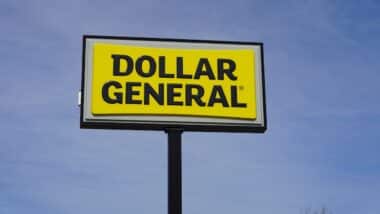 Unauthorized bank accounts may not be limited to the Wells Fargo scandal which caused the financial institution to achieve unprecedented notoriety.
Unauthorized bank accounts may not be limited to the Wells Fargo scandal which caused the financial institution to achieve unprecedented notoriety.
The Wells Fargo unauthorized bank account scandal sparked further investigation into the routine practices and operating culture of the financial services industry, in the United States and in Canada. In Canada, investigations are underway for RBC Bank and other large financial institutions.
In the U.S., the Federal Office of the Comptroller of Currency (OCC) recently announced the results of its investigation into banking sales practices. The OCC, which oversees the activities of the U.S. banking industry, recently concluded a review of up to 40 small to midsize institutions with respect to unauthorized bank account openings and unwarranted service enrollment such as monthly bill pay.
The OCC has stated that it will not publicly release the names of the banks reviewed, but has noted that all of the banks involved have responded quickly to inquiries or questions regarding irregularities.
According to OCC leadership, this is equated with a willingness to work to correct and strengthen policy and procedures to prevent situations like the Wells Fargo scandal from occurring elsewhere. To date, the agency says any evidence of unauthorized bank account openings appeared to be random cases of employee misconduct rather than systemic in origin.
Wells Fargo Scandal
When the news of the Wells Fargo scandal broke, information was released to the public that employees of the bank were involved in unauthorized bank account openings which were attributed to outlandish sales goals established by the organization’s upper management.
The sales goals were incentivized to such a degree as to encourage unscrupulous behavior on the part of bank employees, including signing customers up for costly services, credit cards, and alternate checking accounts without their express permission.
The OCC worked with Wells Fargo to ensure management policies are realistic and do not create similar situations to arise again.
Canada Also Investigates Unauthorized Bank Account Openings
The Financial Consumer Agency of Canada (FCAC) is a Canadian counterpart to the OCC. According to a BNN Bloomberg article, FCAC has done its own review of six of its largest financial institutions which include the Royal Bank of Canada (RBC Bank), Toronto-Dominion Bank, Bank of Nova Scotia, Bank of Montreal, Canadian Imperial Bank of Commerce, and National Bank of Canada.
The probe indicated that there are limited policies and controls established to prevent sales of products that are mismatched to the individual bank patron or prevent outright unauthorized bank account openings.
Because of this disappointing finding, the FCAC plans to continue its investigation into the Canadian financial industry by examining the next size tier of credit unions and smaller banks for irregularities.
The first leg of the investigation with the largest six banks involved painstaking review of over 100,000 pages of bank documentation and interviews with 600 individual employees, according to the March article. The follow-up to this will be a mystery shopper exercise.
The concerns identified have been that in the light of new technology where bank patrons can handle most financial concerns online, customer service personnel are often guided by sales goals which can get out of hand and allow for a culture of impropriety when it comes to unauthorized bank account openings and service enrollment.
An unauthorized bank accounts lawsuit investigation is now looking into banking sales practices at the following banks:
- Bank of America
- BOK Financial
- Capital One
- HSBC
- Royal Bank of Canada
- TD Bank
If you are a customer at one of the banks listed above and you were charged for fees from a bank account you did not open, you were issued a credit card you did not request, or you were enrolled in services you did not authorize, you may qualify to join this fake bank account class action lawsuit investigation.
ATTORNEY ADVERTISING
Top Class Actions is a Proud Member of the American Bar Association
LEGAL INFORMATION IS NOT LEGAL ADVICE
Top Class Actions Legal Statement
©2008 – 2025 Top Class Actions® LLC
Various Trademarks held by their respective owners
This website is not intended for viewing or usage by European Union citizens.
Get Help – It’s Free
Join a Free Fake Bank Account Class Action Lawsuit Investigation
If your bank and credit union has engaged in deceptive overdraft fee practices, you may have a legal claim. Fill out the form on this page now to find out if you qualify!
An attorney will contact you if you qualify to discuss the details of your potential case.
PLEASE NOTE: If you want to participate in this investigation, it is imperative that you reply to the law firm if they call or email you. Failing to do so may result in you not getting signed up as a client or getting you dropped as a client.
In order to properly investigate fake bank account claims, you may be required to disclose bank statements to attorneys. Please note that any such information will be kept private and confidential.
Oops! We could not locate your form.












